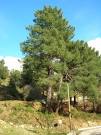Pycnogenol is the US registered trademark name for a product derived from the pine bark of a tree known as Pinus pinaster.
The active ingredients in pycnogenol can also be extracted from other sources, including peanut skin, grape seed, and witch hazel bark. That special pine bark is loaded with a concentrate of active bioflavonoids, which are also found in fresh fruits and vegetables. The extract from that bark is a potent blend of active compounds.
A double-blind, placebo-controlled study, published in European Child and Adolescent Psychiatry (Volume 15, Number 6 / September, 2006), looked at the effect supplementation with Pycnogenol had on children (mean age 9.5 years) with ADHD. The 57 subjects were evaluated by standard questionnaires at the start of the study, at the end of the four-week intervention and one month after the study. The questionnaires used were Conner’s Teacher Rating Scale, Child Attention Problems teacher rating scale, and a modified Wechsler Intelligence Scale for Children. The children were randomly assigned to receive either a placebo or pycnogenol extract for four weeks. At the end of the four week trial, scores evaluating inattention and hyperactivity improved in the supplemented group, but not in the placebo group. When evaluated one month after discontinuing the supplement, the test improvements were negated.






